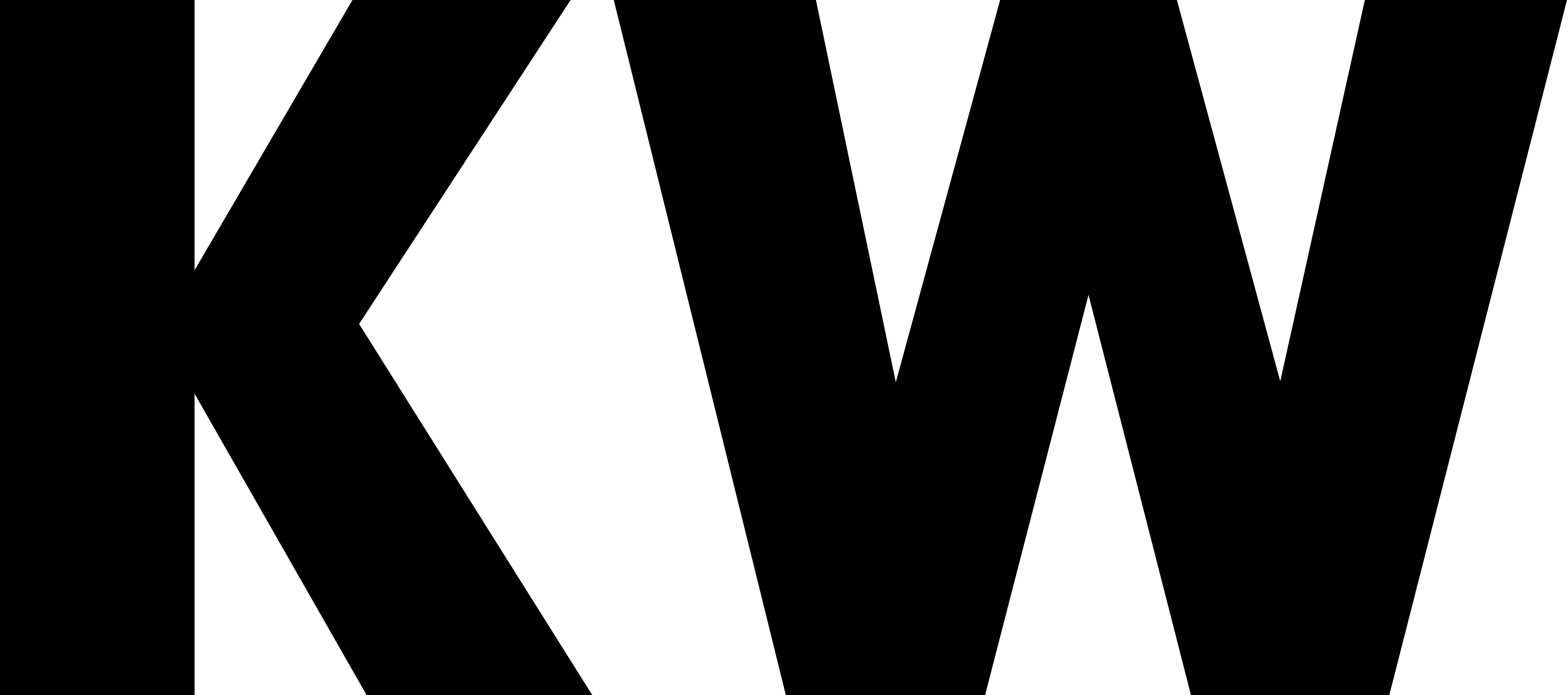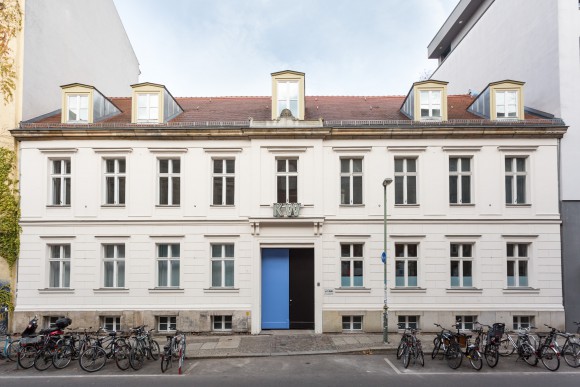Institution
KW Institute for Contemporary Art aims to approach the central questions of our times through the production, display, and dissemination of contemporary art. Since its inception more than 30 years ago, KW has established itself, not only as an institution, but also as a dynamic and lively space for progressive practices within the Berlin art scene, as well as in an international context. By means of exhibitions and various event formats, KW has aligned itself towards the current tendencies of the national and international art and cultural discourse, and has actively developed them on a collaborative level with artists, institutions, and by means of commissioned works. As an institution for contemporary art without a collection of its own, the team at KW maintains a high degree of flexibility in creating its programs and addressing its audience.
More
Under the responsibility of director Krist Gruijthuijsen, the current program evolves around the central objective of using the participating artists’ perspective as a starting point, entailing their subjects and points of view as ways to reflect on social and political issues. The institution is thereby conceived as a social space that facilitates contemplation and exchange between different protagonists and cultures, consistently challenging its audience. The building complex includes exhibition halls, apartments, offices, and event spaces, as well as the Café Bravo in the courtyard, that was designed by Dan Graham in 1999.
In addition to its internationally renowned exhibition program, KW collaborates on a regular basis with national and international partners, such as MoMA PS1, the Biennale di Venezia and Documenta in Kassel.
KW Institute for Contemporary Art is institutionally supported by the Senate Department for Culture and Community. The program of KW is kindly supported by the KW Freunde e. V.
History
KW Institute for Contemporary Art, also known as Kunst-Werke Berlin, was founded by Klaus Biesenbach, Alexandra Binswanger, Clemens Homburger, Philipp von Doering and Alfonso Rutigliano in a derelict former margarine factory in Berlin-Mitte in the early 1990s. Since then, KW has contributed significantly to the development of Berlin as an international center for contemporary art.
More
In 1995, the heritage-listed front building from the late 18th century as well as the factory building, which dates back to the 1870s, were acquired by the Berlin Lotto Foundation after the settlement of pending restitution claims and made available to KUNST-WERKE BERLIN e. V., the support association of KW, for cultural use.
Thanks to the support of the national urban heritage conservation program, the foundation for heritage conservation, as well as the Berlin Lotto Foundation, the KUNST-WERKE BERLIN e. V. was able to renovate the buildings and add two new annexes: Café Bravo, designed by American artist Dan Graham, and realized in cooperation with the architect Johanne Nalbach, and the expansion of the transverse wing of a 400 m² exhibition hall by the Berlin architect Hans Düttmann. When the newly renovated buildings of KW reopened in autumn 1999, the complex had several office and studio spaces in its side wings, one of the most beautiful courtyards in Berlin-Mitte, and 2,000 m² of exhibition space spread across five floors at its disposal.
Since 1998, the exhibition spaces are also used every other year by the Berlin Biennale for Contemporary Art. Founded through a private initiative in 1996, the Berlin Biennale has been receiving exclusive funding as a lighthouse project from the Kulturstiftung des Bundes (German Federal Cultural Foundation) since 2004. Since then, KUNST-WERKE BERLIN e. V. functions as the support association of the Berlin Biennale.
In 2016, it was decided to restructure KUNST-WERKE BERLIN e. V. and form two institutional branches: KW Institute for Contemporary Art and the Berlin Biennale for Contemporary Art. Gabriele Horn—the successor of Founding Director Klaus Biesenbach who had served as Director of both institutions since 2004—remained Director of the Berlin Biennale while Krist Gruijthuijsen was appointed new Director of KW Institute for Contemporary Art in July 2016.
Since its inauguration, KW has aimed to critically examine current tendencies within society through the production, display, and discourse of contemporary art. By means of exhibitions, commissioned works, and various event formats, KW has aligned itself with the national and international art and cultural discourse through collaborations with artists and other institutions.
Over the years, many outstanding artists have presented their first solo exhibitions as well as significant new works at KW, amongst others, Absalon, Kader Attia, Kate Cooper, Keren Cytter, Anna Daučíková, Ceal Floyer, Cyprien Gaillard, Beatriz González, Sidsel Meineche Hansen, Judith Hopf, Channa Horwitz, Lynn Hershman Leeson, Hanne Lippard, Renata Lucas, Hiwa K, Annette Kelm, Adam Pendleton, Mika Rottenberg, Christoph Schlingensief, Hassan Sharif, Wael Shawky, Santiago Sierra, Ryan Trecartin and Lizzie Fitch, as well as Ian Wilson.
Thematic shows and group exhibitions such as 37 Räume (1992), when tekkno turns to sounds of poetry (1995), Stand der Dinge (2000), Territories (2003), Zur Vorstellung des Terrors: Die RAF-Ausstellung (2005), Into Me / Out Of Me (2006), History Will Repeat Itself. Strategies of Reenactment in Contemporary Art (2007), Seeing is Believing (2011), One on One (2012/13), Fire and Forget. On Violence (2015), or The Making of Husbands: Christina Ramberg (2019/2020) have shaped the profile of KW and continuously influenced the international art discourse.
The artistic team of Krist Gruijthuijsen currently consists of Nadim Samman as Curator for the digital sphere, Sofie Krogh Christensen as Associate Curator, Léon Kruijswijk as Curator, Linda Franken as Assistant Curator, Lara Scherrieble as Curatorial Assistent, Nikolas Brummer as Public Program and Outreach Coordinator as well as Marc Hollenstein as Graphic Designer. Previous members of the artistic team count Anna Gritz as Curator (2016–2022), Maurin Dietrich as Assistant Curator (2016–2019), Cathrin Mayer as Assistant Curator and Curator (Parental Leave Replacement) (2016–2020), and Tirdad Zolghadr (2016–2020), Clémentine Deliss and Mason Leaver-Yap as Associate Curator.
Earlier curatorial staff members of KW also count Anselm Franke (2001–2006), Susanne Pfeffer (2007–2012), and Ellen Blumenstein (2013–2016) as Chief Curators. Internationally renowned guest curators were furthermore regularly invited to develop their exhibition projects within KW.
Team
Organisation and Management
Krist Gruijthuijsen
Director
Friederike Klapp
Office Manager to the Director
fk@kw-berlin.de
Artistic Office
Léon Kruijswijk
Curator
Nadim Samman
Curator Digital Sphere
Sofie Krogh Christensen
Associate Curator
Linda Franken
Assistant Curator
Lara Scherrieble
Curatorial Assistant
Nikolas Brummer
Public Program and Outreach Coordinator
Mathias Wölfing
Head of Production
Claire Spilker (on Parental Leave)
Head of Production
Wilken Schade
Technical Management
Bryn Veditz
Registrar
Luisa Haustein
Assistent Registrar
Aykon Süslü
Academic Trainee
Mattis Thomsen
Intern
Pauline Jacob
Intern
Design
Marc Hollenstein
Press and Communication
Anna Falck-Ytter
Head of Communication and Marketing
Marie Kube
Head of Communication and Press
Luisa Schmoock
Assistant Press and Communication KW Digital Program
Alena Beyer
Intern
Education and Mediation
Laura Hummernbrum
Head of Education and Mediation
Alexia Manzano
Head of Education and Outreach
Associated Art Mediators
KW Guides
Irene Accardo
Müge Bakır
Ralf Häusler
Janika Jähnisch
Pia Gottschalk
Archive
Jenny Dirksen
Christina Huber
Administration and Finances
Tel +49 30 243459-33
Jörg Streichert
Head of Administration KUNST-WERKE BERLIN e.V.
Saskia Tritto
Human Resources
Tel +49 30 243459-90
Franziska Dommers
Team Assistant
Sabine Gehrke
Head of Accounting
Yvonne Reuther
Finance and Project Controlling
Sabrina Bernstetter
Digitalization Assistant
Lippert v. Raggamby Rechtsanwälte
Legal Advisors
Installation and Media Technology
Markus Krieger
Head of Installation and Media Technology
KW Installation Team
Maintenance
Konrad Muchow
Tel. +49 30 243459-84
Roman Suckau
Network Administration
Guards Coordination
Maria Eliza Kouloudi
Udo Klink
Publications and Webshop Manager
William Loftie
KW Freunde
Philipp Lange
Head of Management
KUNST-WERKE BERLIN e. V.
Executive Members of the Board
Katharina Grosse
Paula Macedo Weiß
Katharina Kurz
Board Members
Eike Becker
Klaus Biesenbach
Karen Boros
Mariana Clayton
Olafur Eliasson
Simone Graebner
Almut Grüntuch-Ernst and Armand Grüntuch
Markus Hannebauer
Erika Hoffmann
Patricia Kamp
Stephan Landwehr
Eberhard Mayntz †
Timo Miettinen
Brigitte Oetker
Florian Peters-Messer
Pavlína and Petr Pudil
Sara Puig and Désiré Feuerle
Rivka Saker
Matthias Sauerbruch
Katharina Sieverding
Julia Stoschek
Diana Widmaier Picasso
Venue hire
Selected venues at the KW Institute for Contemporary Art are available for hire. Availability complies with the exhibition schedule.
We would gladly put together an individualized offer for you.
Contact
Friederike Klapp
Tel. +49 30 243459-24
Fax +49 30 243459-99
Jobs
There are currently no positions available.
Antidiscrimination Clause
The KW Institute for Contemporary Art understands itself as a discursive platform for the exchange of different perspectives and through this, it welcomes lively discussion. Discrimination or any kind of act based on racist and antisemitic ascriptions, or targeting ethnic origin, nationality, sexual and gender identity, religion, physical or mental impairment, chronic illness, age, language, and social status will not be accepted. Regardless of their nationality, everyone in Germany is protected from discrimination by the General Equal Treatment Act (AGG) and the Berlin State Anti-Discrimination Law (LADG). Everyone has the right to take action against discrimination for themselves or others.
Partner


